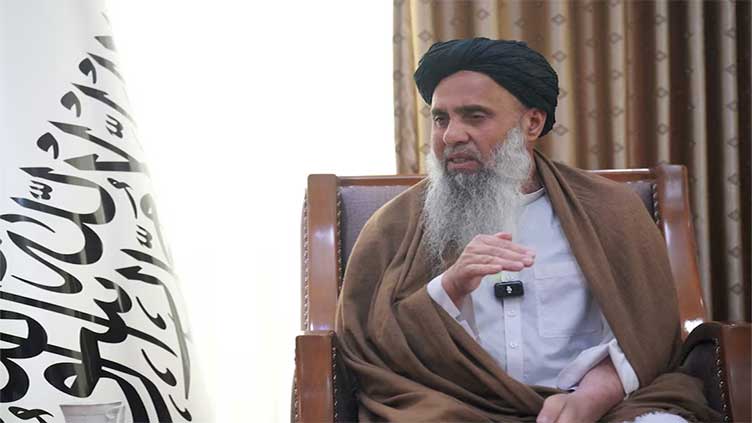Afghan Taliban member freed from US custody in exchange for two Americans, Kabul says

World
Afghan officials said the man, Khan Mohammad, had landed in Kabul after being released
KABUL (Reuters) – The United States has freed an Afghan convicted by an American court on charges of drug smuggling and terrorism in exchange for two US citizens held in Afghanistan, authorities in Kabul said on Tuesday.
Afghan officials said the man, Khan Mohammad, had landed in Kabul after being released. Mohammad was sentenced to life imprisonment in 2008 by a US court, which was the first conviction on narco-terrorism charges, according to the US Department of Justice.
Mohammad told local media organisation Hurriyat in a video interview on Tuesday that he had left prison on Jan. 16.
"Thanks to the support and assistance of the Islamic Emirate and, by God's grace, I was freed," he said, referring to the Taliban's name for its government.
The prisoner exchange was the result of "long and productive" negotiations between Afghan and American authorities, Afghanistan's foreign ministry said in a statement.
Mohammad was arrested in eastern Afghanistan in 2006 and extradited to the US a year later, according to the DOJ website.
Zabihullah Mujahid, a spokesman for the Taliban administration, confirmed that two Americans had been released, but declined to identify them.
One of the Americans released was named Ryan Corbett, according to a statement on a site run by his family. Corbett had been in Taliban detention since 2022, the family site said.
"We are overwhelmed with joy that Ryan is on his way home," the family said on the site.
CNN and the New York Times reported on Sunday that the other American released was William McKenty.
"The Islamic Emirate views the actions of the United States positively when they contribute to normalizing and expanding relations between the two countries," Afghanistan's foreign ministry statement said.
It thanked Qatar for its role in the exchange.
WHO WERE THE MEN RELEASED?
According to the DOJ website, Mohammad was a member of the Afghan Taliban who had been sentenced to life imprisonment on two counts at the age of 38 in the first ever narcotics-terrorism charges brought in the United States.
The website quoted court records saying Mohammad was "a violent jihadist and narcotics trafficker" who "sought to kill US soldiers in Afghanistan using rockets".
Corbett's family said he ran a non-government organization called Bloom Afghanistan, which was a social enterprise focused on strengthening Afghanistan’s private sector.
He was in Afghanistan to renew his business visa in 2022 when he was detained by the Taliban.
McKenty's family had asked the US government to keep his details private, according to the New York Times.
The prisoner exchange was years in the making and finally struck in the very last hours of Democratic former President Joe Biden's time in office before Republican President Donald Trump took over on Monday, CNN reported.
"It's notable that the Taliban waited for Trump," said Graeme Smith, senior analyst at International Crisis Group.
"Of course it was negotiated by the Biden administration, and I think the outgoing administration laid the groundwork for further potential deals,” he added, referring to the talks over other Americans detained in Afghanistan as well as Muhammad Rahim al-Afghani, a high-profile prisoner held in Guantanamo Bay.
Biden's administration had been negotiating with the Taliban since at least July about a US proposal to release three Americans, including Ryan Corbett but also George Glezmann and Mahmood Habibi – in exchange for al-Afghani, Reuters reported this month, citing a source familiar with the discussions.
The New York Times reported that Glezmann and Habibi remained in Afghanistan after this week's release.
Glezmann is a former airline mechanic. Mahmood Habibi, a naturalized American, was seized soon after a US strike in Afghanistan killed Ayman al-Zawahri, the leader of Al Qaeda, the New York Times said.
Corbett's family praised both the Trump and Biden administrations for the exchange but expressed regret that Glezmann and Habibi were also not freed, according to a statement.


